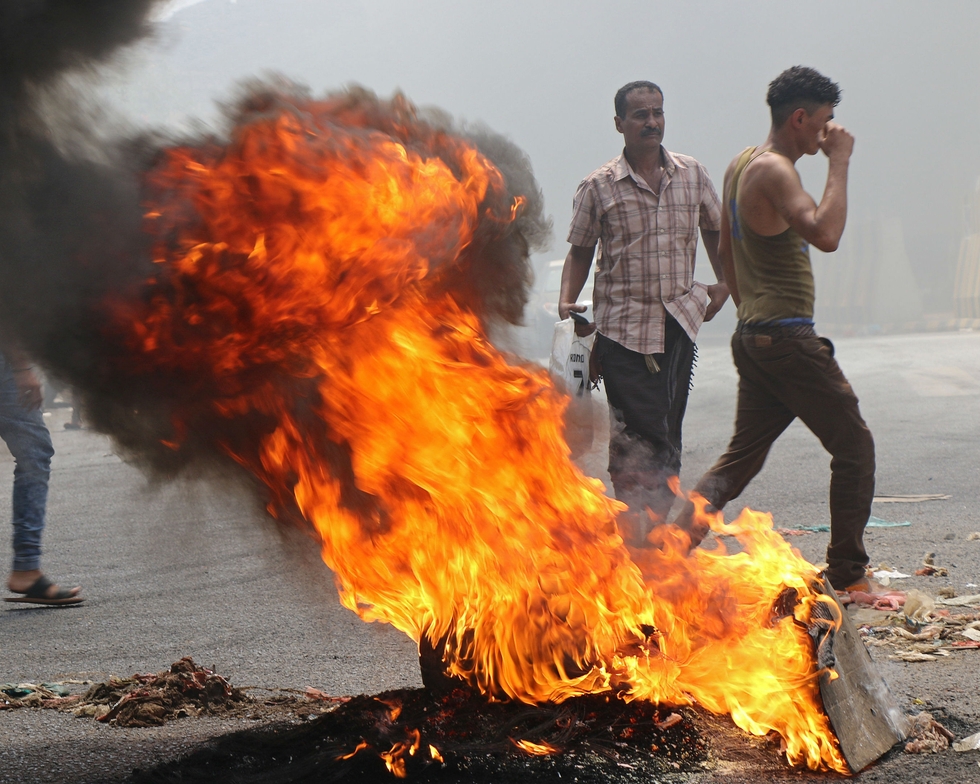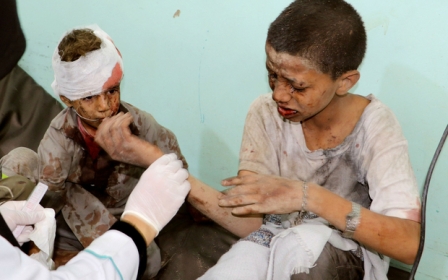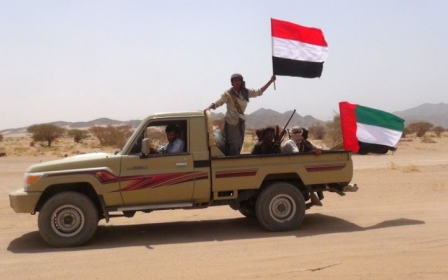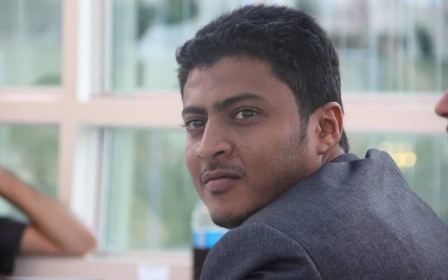Protests over Yemen's weakening currency paralyse Aden

Hundreds of demonstrators protesting against Yemen's deteriorating economic situation and weakening currency have blocked major roads and burned tyres in the southern city of Aden, with many shops and government offices closing.
The Yemeni rial has lost more than half its value against the US dollar since the start of a civil war in 2015 between the internationally recognised government, based in the south and backed by Saudi Arabia, and the Iran-aligned Houthi movement which controls the north, including the capital Sanaa.
Soaring prices have put some basic commodities out of reach for many Yemenis, and the central bank has struggled to pay public sector salaries on which many depend as foreign exchange reserves dwindle.
Aden's usually bustling markets were empty on Sunday after the coordinating council of the General Confederation of Southern Workers' Unions called for civil disobedience.
Plumes of smoke from burning tyres filled the air, including in the main square where a National Bank of Yemen building is situated.
There were reports of smaller protests in nearby municipalities, the Reuters news agency reported.
"There is no alternative to change the situation except popular revolution against corruption in all its forms," said one of the protesters Fadl Ali Abdullah.
"The people have lost confidence in everything around them."
The authorities have sought to boost liquidity by printing money, but the rial plunged from 250 to the dollar to 350 after the first batch of newly printed notes was rolled out last year.
It was trading at 440 to the dollar by the end of last year and crashed to around 500 in January.
Saudi Arabia, which is leading a military coalition against the Houthis, then deposited $2bn in Yemen's central bank to shore up the rial, but the currency has since weakened further to around 550 to the dollar.
The war has created a humanitarian and economic crisis on the already impoverished country.
A cholera epidemic erupted last year, and the United Nations has said that Yemen could face one of the deadliest famines of modern times.
Peace talks
Meanwhile, government officials said Sunday on that Yemen's warring parties will not meet face-to-face at UN-brokered peace talks in Geneva this week, which will likely focus on a prisoner exchange deal.
The UN has invited Yemen's government and the Houthi rebels to Geneva for talks which open on Thursday.
Both parties have confirmed they are sending high-level delegations to the talks, but officials say expectations of a breakthrough are low, the AFP news agency reported.
UN envoy Martin Griffiths has said the talks are aimed at charting a path forward to revive UN-backed negotiations which broke down in 2016.
The Yemeni government says the talks will likely focus on a prisoner exchange deal and the fate of embattled Hodeidah, the rebel-held port city that is now the frontline of the Yemen war.
Yemen's Foreign Minister Khaled al-Yamani told AFP the meetings "will not be face-to-face and depend on how well the UN envoy manages the two sides".
"The consultations will be indirect, unless there is some progress that can be made directly," said Abdullah al-Olaimi, head of Yemen's presidential office and a member of the Geneva delegation.
Yemen's government has openly said it has low expectations for the talks, blaming the Houthis for refusing to make concessions.
"Our expectations are limited to the possibility of progress in the question of prisoners and detainees," Yamani said.
"I think this is the chance to succeed in securing the release of prisoners, and I believe the other party is also willing and ready."
The UN has likewise set a low bar for the talks, the first since 106 days of negotiations in Kuwait failed to yield an agreement between the government and rebels back in 2016.
"The aim of this first round of consultations is to better understand how committed both parties are to the framework for formal negotiations... and to come to some conclusions about how those negotiations may start," said UN spokesman Stephane Dujarric.
'War crimes'
In July, the Yemeni government demanded the release of all prisoners held by the Houthis as a condition for the start of peace talks.
Speaking on condition of anonymity, a government source said the delegation would demand the release of 5,000 prisoners while the rebels were hoping for the liberation of 3,000 of their fighters.
Rights group Amnesty International in July said it feared violations in a string of Yemeni prisons could amount to war crimes.
The prisons, according to Amnesty, are run by the UAE, the Yemeni government's most powerful partner on the ground.
The UAE has denied involvement in any prisons in Yemen.
New MEE newsletter: Jerusalem Dispatch
Sign up to get the latest insights and analysis on Israel-Palestine, alongside Turkey Unpacked and other MEE newsletters
Middle East Eye delivers independent and unrivalled coverage and analysis of the Middle East, North Africa and beyond. To learn more about republishing this content and the associated fees, please fill out this form. More about MEE can be found here.




